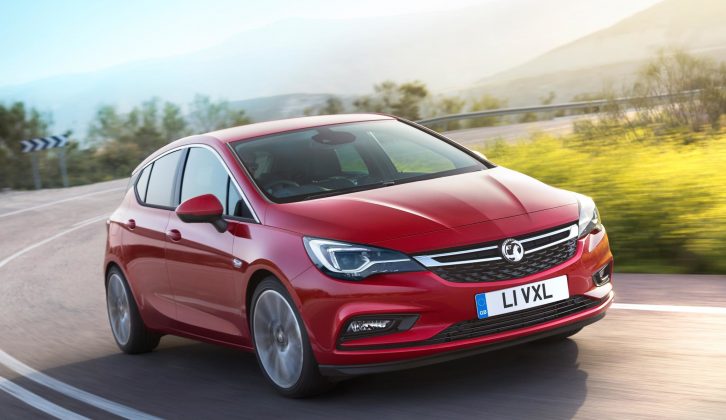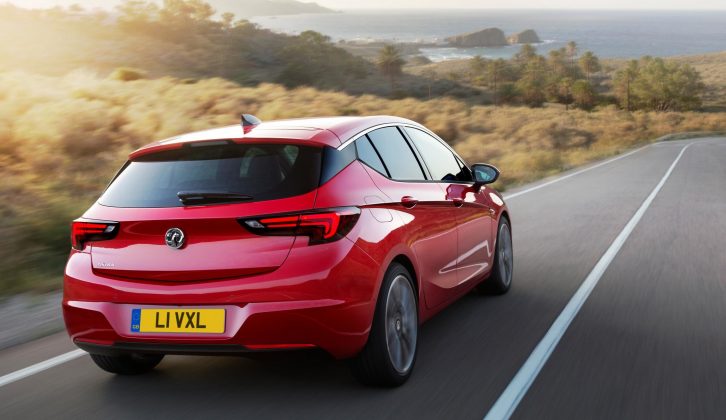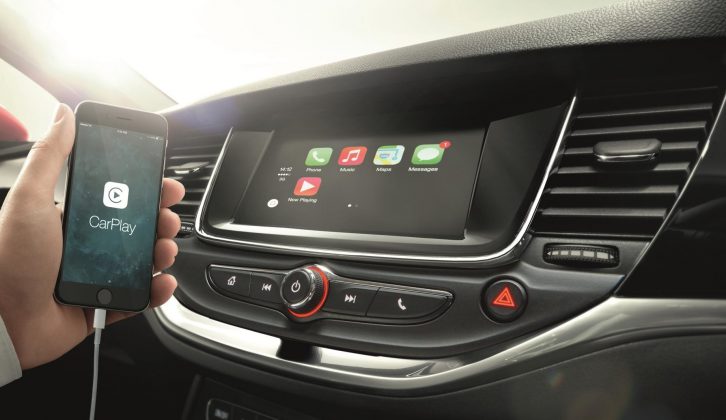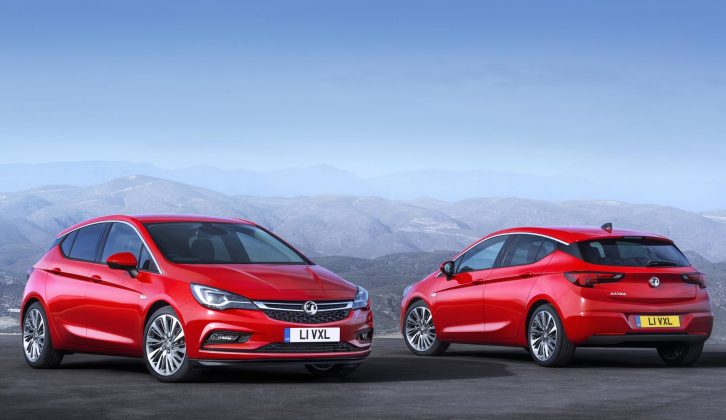Vauxhall has revealed the seventh-generation Astra, due on sale towards the end of the year. It should make an interesting rival to other small tow cars like the Ford Focus, Škoda Octavia and Volkswagen Golf.
As well as showing off the car’s styling ahead of its public debut at the Frankfurt motor show in September, Vauxhall has announced the engine line up, some technical details and a number of high-tech features.
There’s good and bad news for anyone wondering if the new Vauxhall Astra will make a good match for their caravan. Like most new cars, the new Astra will be lighter than its predecessor. The weight of the bodyshell alone has been reduced from 357kg to 280kg, while weight savings to the chassis and suspension have saved another 50kg.
Although Vauxhall has not revealed data for specific versions, kerbweights will drop by an average of 130kg and up to 200kg. That means the 85% match figures for the new car will be lower by up to 170kg.
As well as being lighter, the new Astra is smaller than its predecessor. It’s some 5cm shorter and 2.6cm lower. However, Vauxhall says that clever packaging has freed up more space inside. There’s an extra 35mm (just under 1.5 inches) of extra rear legroom, Vauxhall claims.
Engine-wise, the Astra will be available with a wide choice of petrol and diesel engines with outputs ranging from 100PS (99bhp) to 200PS (197bhp). The industry-wide trend towards small capacity turbocharged petrol engines continues with an all-new 1.4-litre 145PS (143bhp) Ecotec Direct Injection Turbo. It delivers 184lb ft of torque, which should be enough to make it a viable alternative to a diesel for tow car drivers.
Even so, for regular towing one of the 1.6 CDTi diesel engines is likely to prove the best choice. The 1.6 will be available with power outputs ranging from 110PS (108bhp) up to 160PS (158bhp). Vauxhall calls this engine the ‘Whisper Diesel’, which might be stretching things a bit. But anyone trading up from an older Astra with one of the 1.7-litre diesels will be amazed by the improvement in refinement, judging by our experience with this engine in other Vauxhall models.
Although fuel figures for the new Astra haven’t been announced, the 1.6 CDTi should also be very economical. The 136PS version of this engine fitted to the Mokka crossover achieves 65.7mpg on the combined cycle. Even allowing for the optimistic official numbers, owners should expect fuel stops to be few and far between.
As well as high-tech engines under the bonnet, there will be plenty of other advanced features. The new Astra will be the first Vauxhall to have the ‘OnStar’ personal connectivity and service assistant from launch.
Not sure what a “personal connectivity and service assistant” is? Vauxhall says it “offers customers a broad range of safety and comfort services”. For example, if an airbag deploys, OnStar will be alerted automatically. An advisor will then contact the vehicle to ask if help is needed. If there is no response, the emergency services are immediately sent the car’s exact location.
OnStar also turns the car into a mobile Wi-Fi hotspot, with the facility for up to seven devices to be connected at once. The service will be available 24 hours a day, 365 days a year.
At the moment, Vauxhall is offering OnStar free of charge for the first year on a number of new Vauxhall models, but a subscription will apply after 12 months. We’d expect a similar arrangement to apply for new Astra owners.
Other features which will be standard or optional on the new Astra include a new generation IntelliLink infotainment system which connects to a compatible smartphone, and what Vauxhall describes as “glare-free” IntelliLux LED headlights, which adjust their beam pattern between high- and low-beam with no input from the driver. The lights dip automatically if another vehicle comes the other way to avoid dazzling other road users.
What tow car ability will the new Vauxhall Astra have? We’ll have to wait and see. I look forward to driving it later in the year, and hopefully towing with one early in 2016.
Anyone trading up from an older Astra with one of the 1.7-litre diesels will be amazed by the improvement in refinement















